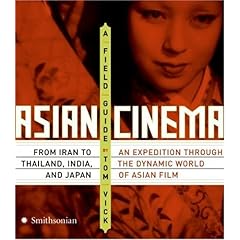I've been spending a lot of time in the early 19th century lately. Without premeditated intent, I've found a pattern in recent reading and viewing:
- Desolation Island by Patrick O'Brian (book & audiobook)
- Sense and Sensibility (PBS Masterpiece TV)
- The Jane Austen Book Club (DVD)
- Empire of Ivory by Naomi Novik
Patrick O'Brian's rich legacy of Aubrey/Maturin novels was most famously developed into the film
Master and Commander: the Far Side of the World. The story of two friends -- the bluff, hearty, Captain "Lucky" Jack Aubrey, and the Irish-Catalonian naval surgeon, natural historian and spy Stephen Maturin -- follows them through the Napoleonic wars, the War of 1812, and other adventures.
It's been said that O'Brian writes about what the men were doing while Jane Austen's heroines anguished over matrimonial prospects. Indeed the second and third Aubrey/Maturin books humorously and successfully satirize Austen. But O'Brian shines in the painstaking historical detail, the period language, and above all in action sequences. I'm currently in the eighth book of the series, but the sixth,
Desolation Island, was the beginning of a three book story arc and contained stirring battles that almost redefine the term "page turner."
O'Brian's work is also well served in audiobooks with the work of excellent narrators, John Lee and Patrick Tull. Each brings different strengths, but both make it a joy to listen. Lee's work on
Desolation Island makes it difficult to stop listening, with fine voice characterizations and narrative power.
Sense and Sensibility, a two part-adaptation on PBS' Masterpiece, is one of the finest screen translations of Jane Austen. Written by Andrew Davies, who famously adapted
Pride and Prejudice as a mini-series, this new production holds its own with Emma Thompson's wonderful 1995 feature film. Wonderfully produced, cast, acted and filmed with strong direction, this is a must see for Austen fans.
The Jane Austen Book Club, the film of Karen Joy Fowler's novel, is fun and entertaining chick-flick stuff. But with a large ensemble cast, the screenplay does not have room for deep characterizations, and the movie feels light-weight. The cast turns in good performances as a group reads Austen's novels and applies them to personal problems, but the whole seems contrived.
Empire of Ivory, on the other hand, was a pleasant surprise. I read the
first books in Naomi Novik's fantasy series awhile back and enjoyed them, but thought they were fairly predictable. The premise is goofily engaging -- what if the British and French employed fighting dragons during the Napoleonic wars? But the result was engaging but slight.
During the four books of the series, however, Novik has continued to develop larger themes. And now she kicks it up a notch in both seriousness and imagination. She continues to use human exploitation of dragons as an analog for the 19th century slave trade. Here she mixes in the discovery of a hidden, advanced pan-African empire that threatens European dominance. In the earlier books, dragons sometimes seemed curiously tacked on to world history as we know it. Novik has gotten bolder, giving her secondary world a stronger narrative life.
 This useful reference guide, published in collaboration with the Smithsonian Institution, gives a good overview of the scope of Asian cinema and the works of prominent directors. The author, Tom Vick, does Asian film work at the Smithsonian, and this 274 page guide, published in 2007, provides a timely introduction to a subject of increasing interest.
This useful reference guide, published in collaboration with the Smithsonian Institution, gives a good overview of the scope of Asian cinema and the works of prominent directors. The author, Tom Vick, does Asian film work at the Smithsonian, and this 274 page guide, published in 2007, provides a timely introduction to a subject of increasing interest.

